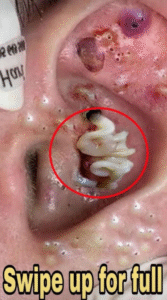Acne and Everything You Need to Know About It
Acne is one of the most common skin conditions in the world, affecting up to 85% of people at some point in their lives. While often associated with adolescence, acne can affect people of all ages and skin types. Understanding what causes it, how to treat it, and how to prevent it can make a big difference in managing this sometimes stubborn condition.
What Is Acne?
Acne is a skin condition that occurs when hair follicles become clogged with oil (sebum), dead skin cells, and sometimes bacteria. This leads to pimples, blackheads, whiteheads, or deeper cysts. It commonly appears on the face, but can also affect the back, chest, shoulders, and neck.
Types of Acne
There are several types of acne, each with its own appearance and severity:
-
Whiteheads: Closed pores clogged with oil and dead skin, appearing as small white bumps.
-
Blackheads: Open pores filled with oil that darkens when exposed to air.
-
Papules: Small red bumps that are often tender.
-
Pustules: Pimples containing pus; they look like whiteheads with red bases.
-
Nodules: Large, painful lumps beneath the skin.
-
Cystic Acne: Deep, pus-filled lumps that often lead to scarring.
What Causes Acne?
Several factors contribute to acne:
-
Hormones: Androgens increase oil production, which can lead to clogged pores—especially during puberty, menstruation, or hormonal changes.
-
Genetics: If your parents had acne, you’re more likely to develop it.
-
Stress: While it doesn’t directly cause acne, stress can trigger hormonal changes that worsen breakouts.
-
Diet: Foods high in refined sugars and dairy may aggravate acne in some individuals.
-
Skin Products: Using comedogenic (pore-clogging) products can contribute to breakouts.
-
Medications: Certain drugs, like corticosteroids or lithium, can cause acne as a side effect.
Treatment Options
There is no one-size-fits-all solution for acne, but several effective treatments are available:
-
Topical Treatments: Products with ingredients like benzoyl peroxide, salicylic acid, retinoids, or antibiotics are often first-line treatments.
-
Oral Medications: Birth control pills, antibiotics, or isotretinoin may be prescribed for more severe or persistent cases.
-
Professional Treatments: Dermatologists may offer chemical peels, laser therapy, or drainage procedures for cysts.
-
Natural Remedies: Tea tree oil, green tea extract, and aloe vera can have mild benefits for some people.
Prevention Tips
-
Wash your face twice daily with a gentle cleanser.
-
Avoid touching your face, as this transfers bacteria and oils.
-
Use non-comedogenic skincare and makeup products.
-
Change pillowcases and towels regularly to minimize bacteria.
-
Manage stress through exercise, mindfulness, or adequate sleep.

